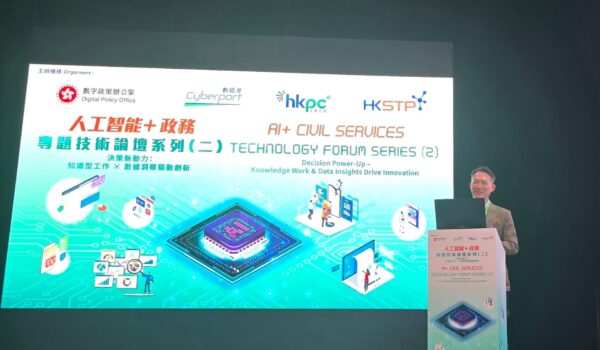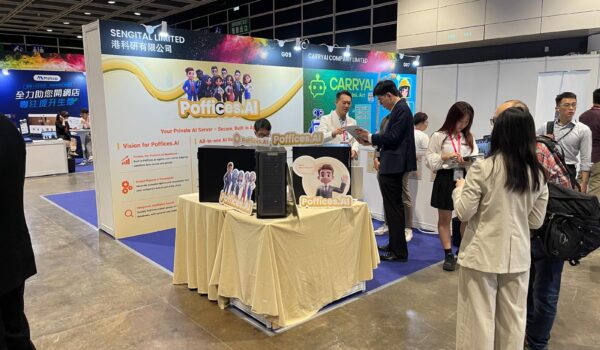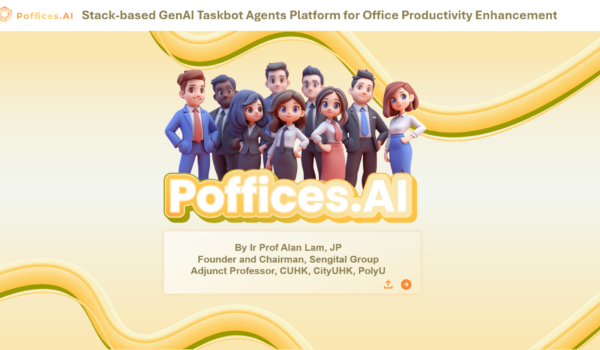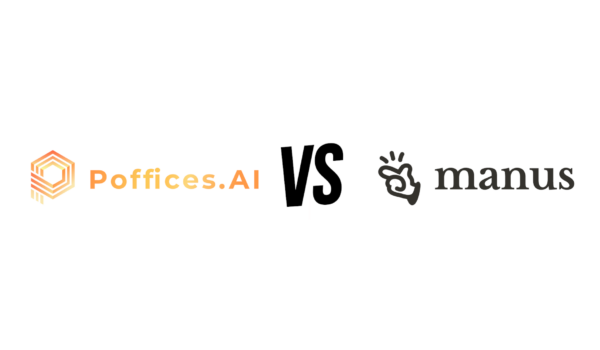

- Alan Lam
- |
- 2025/03/18
- |
- 0 Comments
Questionnaire Form in Poffices.ai
In 2022, the launch of ChatGPT marked a significant turning point in the world of Generative AI (GenAI). The rise of chatbots captured the attention of many organizations, but the predominant limitation of these chatbots was their design, which typically focused on conversation rather than task execution. Recognizing this limitation, I co-founded Sengital Group with a vision to enhance productivity in office operations through a more advanced platform known as Poffices.ai. This innovative platform is designed to accommodate various office environments and includes over 100 domain-specific AI agents tailored to execute specific tasks efficiently. Among these agents is the Questionnaire Form AI Agent from the Admin Office, a tool that empowers users to create tailored questionnaire forms effortlessly.
By visiting https://questionnaire.poffices.ai/, users can access this resource and streamline their questionnaire design process. The Questionnaire Form AI Agent operates in a unique way; users only need to provide the questionnaire name and background information, and the AI agent will take care of the rest. This seamless interaction reflects how AI can redefine workplace productivity.
Understanding the Role of the Questionnaire Form AI Agent
The Questionnaire Form AI Agent represents a transformative system that simplifies the questionnaire design process. These forms are vital in today’s data-driven world, allowing organizations to gather crucial insights from various audiences. Surveys and questionnaires have emerged as essential tools for gathering feedback and understanding needs. Whether for employee satisfaction, customer feedback, or market research, effective questionnaires are crucial for informed decision-making. The design method plays a significant role in determining the effectiveness of gathered information.
For many office environments, creating a well-structured questionnaire can be challenging. Traditionally, this required significant time and effort from skilled personnel, which could hinder productivity. The Questionnaire Form AI Agent eliminates these interferences by providing users with an efficient platform for form design. Users can expect a process that is not only quick but also tailored to their specific needs, ensuring that the resulting questionnaire aligns with their objectives.

Features of the Poffices.ai Questionnaire Form AI Agent
The Questionnaire Form AI Agent is an example of our multi-layered framework, which integrates advanced AI capabilities with a knowledge-based engine. This AI agent is designed to craft questionnaires that facilitate effective data collection. Here are some key features of the Questionnaire Form AI Agent:
User-Friendly Interface: The interface allows users to input minimal information while maximizing output. After entering the questionnaire name and background, the agent processes this information to generate a well-structured form quickly.
Task-Specific Design: Each Questionnaire Form is tailored to fit specific informational needs. This ensures that users obtain relevant and actionable data, which aligns with their objectives.
Versatile Output Formats: The AI generates questionnaires that can be formatted for various platforms. Whether users require outputs in PDF, DOCX, or CSV formats, the agent can accommodate these requests effectively.
Incorporation of Advanced AI Principles: Leveraging Natural Language Processing (NLP) and machine learning algorithms, the Questionnaire Form AI Agent ensures that the generated forms reflect the latest trends and practices in survey design, enhancing both user engagement and data quality.
Seamless Integration with Other Office Functions: The Questionnaire Form AI Agent works in conjunction with other taskbots within the Poffices.ai platform, ensuring that the data collected can further be analyzed or reported as needed by relevant AI agents in various departments.
These features position the Questionnaire Form AI Agent as an indispensable tool for any organization seeking to enhance data collection and operational efficiency.
The Importance of Efficient Questionnaire Design
Questionnaire design significantly impacts the quality of data collected. Poorly constructed questionnaires can lead to ambiguous results, misinterpretations, and ultimately wasted resources. Therefore, engaging effectively with potential respondents and asking questions in a clear, concise manner is imperative for effective data analysis.
Data collected through questionnaires can guide foundational decisions in various areas, including employee engagement, consumer behavior analysis, and product feedback assessments. For instance, organizations can utilize feedback gathered from employee satisfaction surveys to enhance their work culture and boost overall morale. Similarly, understanding customer preferences can lead to improved products and services, aligning offerings more closely with market demands.
Interestingly, many organizations still face challenges in collecting feedback despite acknowledging its importance. Market research statistics show that firms actively leveraging feedback significantly outperform their counterparts that do not prioritize data gathering. The Questionnaire Form AI Agent addresses these challenges by providing a platform wherein businesses can quickly and efficiently create targeted and impactful questions that cater to their unique requirements.
Common Challenges in Creating Questionnaires
Organizations often encounter several hurdles when creating questionnaires. These challenges can result in inefficient data collection efforts. Some common issues include:
Lack of Expertise: Not every employee is trained to develop effective questionnaires, leading to poorly designed forms that fail to gather relevant information.
Time Constraints: Developing and refining questionnaires can consume vital resources and time, especially in organizations with limited personnel.
Ambiguous Questions: Vague or overly complex questions can confuse respondents, leading to unreliable data.
Inadequate Analysis Framework: Once data is collected, organizations may struggle to analyze and act on the insights effectively, reducing the overall utility of the feedback.
By incorporating AI-driven solutions such as the Questionnaire Form AI Agent from Poffices.ai, organizations can surmount these challenges. The automation of questionnaire creation streamlines the process, allowing staff to focus on analysis and strategic initiatives rather than manual form design.

Best Practices for Designing Effective Questionnaires
When creating a questionnaire, several best practices can enhance its effectiveness:
Define Objectives Clearly: Prior to designing the questionnaire, organizations should clarify their objectives and understand what insights they wish to gather from respondents.
Keep It Concise: Lengthy questionnaires can disengage respondents. It’s best to limit the number of questions to only those crucial for the objectives.
Use Clear Language: Ensure that questions are straightforward and free from jargon.
Test the Questionnaire: Pilot testing helps identify areas for improvement before full rollout. Gathering feedback from a small sample can optimize overall design.
Employ Varied Question Types: Mix open-ended and closed questions to maintain engagement and gather both qualitative and quantitative data.
Following these practices, organizations can effectively create questionnaires that not only survive testing but thrive in delivering actionable insights.
The Future of AI in Survey Design
As AI technologies continue to evolve, organizations can expect even more sophisticated tools for crafting questionnaires. Future iterations of AI agents like the Questionnaire Form AI Agent may offer additional features such as:
Real-Time Analysis: Advanced analytics could provide organizations with instant feedback regarding question effectiveness, allowing for adjustments in real-time based on initial responses.
Enhanced Personalization: Future models may analyze respondent profiles to tailor questions dynamically, ensuring relevance and engagement.
Greater Integration with Business Intelligence Tools: Seamless integrations with other data analytics applications may provide more comprehensive reporting and insight derivation.
Adaptive Learning Mechanisms: The AI can learn from past responses to enhance future questionnaire designs automatically.
These features will undoubtedly exponentially enhance the effectiveness of data collection initiatives across diverse sectors.
Conclusion
The Questionnaire Form AI Agent from Poffices.ai encapsulates the future of effective questionnaire design. By utilizing AI’s capabilities to streamline and optimize the questionnaire creation process, organizations can not only save invaluable time but also improve the quality of data collected. This tool represents the evolution from traditional survey methods to modern, AI-assisted solutions that enhance productivity and insights within various domains.
Ir Prof Alan Lam
Inventor of Poffices.ai
Founder and Chairman of Sengital Group
You might also like
Poffices.AI Celebrates One-Year Anniversary, Official Launch of the “Digital Assets Builder”
- Poffices.AI
- 2026/01/16
Poffices.AI celebrates its first anniversary by launching "Digital Assets Builder" a groundbreaking solution
Poffices.AI Shines at DPO Tech Forum
- Poffices
- 2025/11/04
Poffices.AI presented its cutting-edge AI agents and the All-in-One AI Server at the DPO Technology Forum,
Poffices.AI All-in-One Server at AI+POWER 2025 Exhibit
- Poffices
- 2025/06/06
The launch of Poffices.AI’s All-in-One Server at the AI+POWER 2025 exhibit represents a major advancement
Poffices Launch All-in-One AI Server
- Poffices
- 2025/06/05
The Poffices AI Server integrates proprietary AI Agents and optimized LLMs, enabling companies to streamline
Poffices.AI Introduction
- Poffices
- 2025/05/08
Poffices.AI provides a comprehensive suite of AI tools to streamline your work and boost productivity,
Poffices.AI vs Manus AI: Which AI Tool Wins?
- Poffices
- 2025/04/17
In the competitive AI landscape, Poffices.AI and Manus AI offer distinct advantages. This post explores
Search
New Products
-
 All-in-one AI Server B3
$499,800.00
All-in-one AI Server B3
$499,800.00 -
 All-in-one AI Server B2
$299,800.00
All-in-one AI Server B2
$299,800.00 -
 All-in-one AI Server B1
$199,800.00
All-in-one AI Server B1
$199,800.00 -
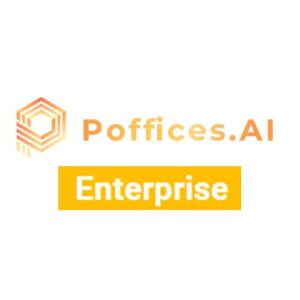 Enterprise
$10,800.00/ year
Enterprise
$10,800.00/ year -
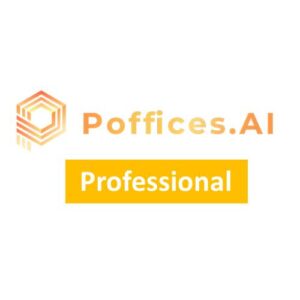 Professional
$1,440.00/ year
Professional
$1,440.00/ year


